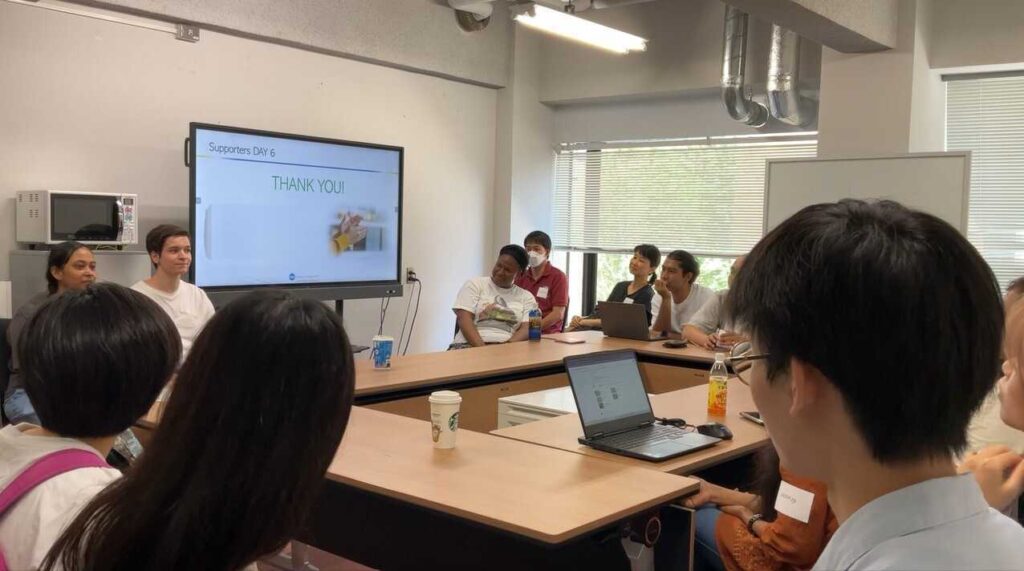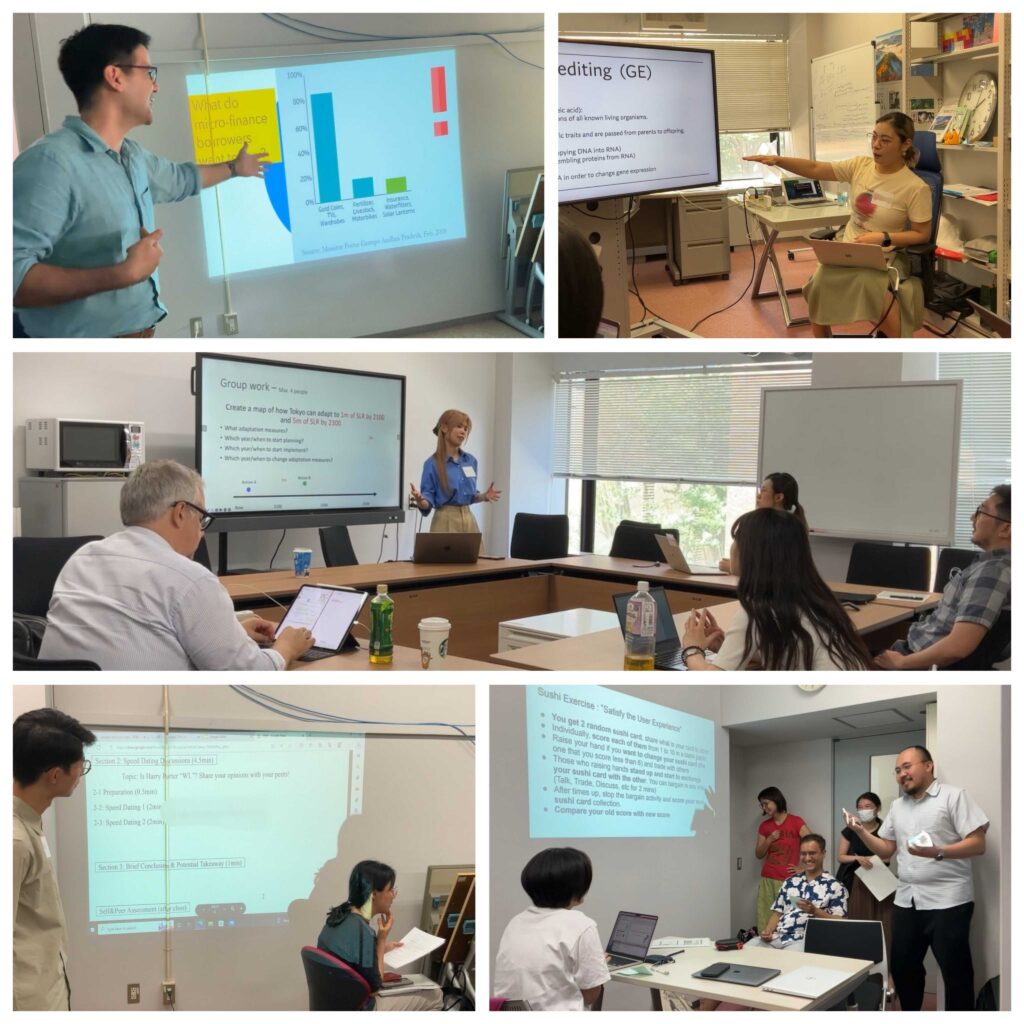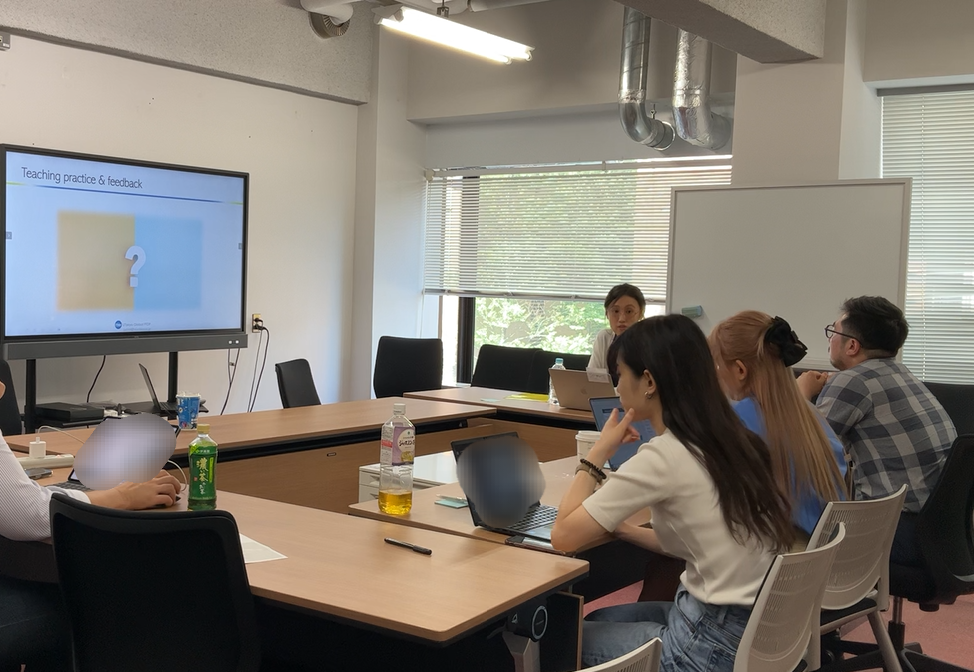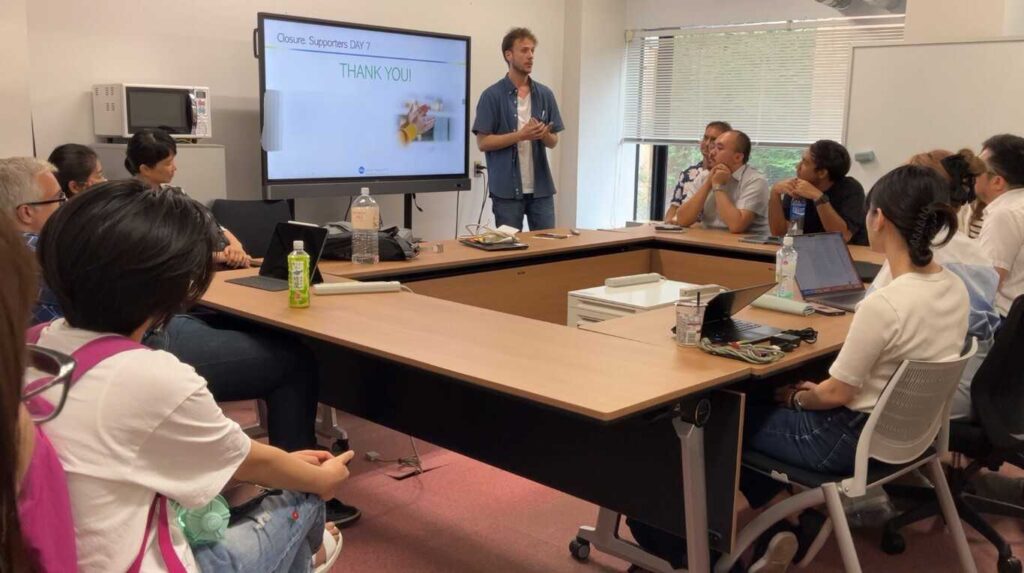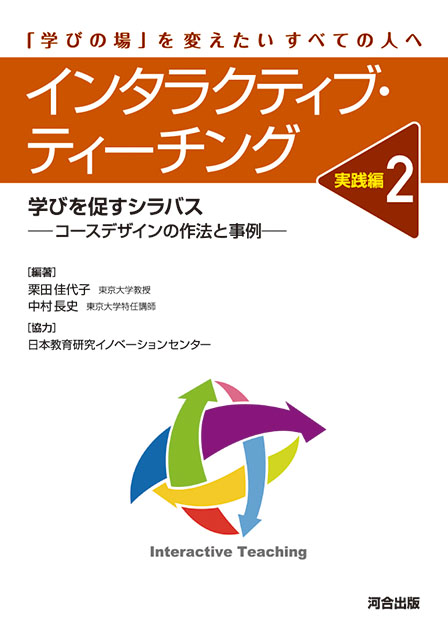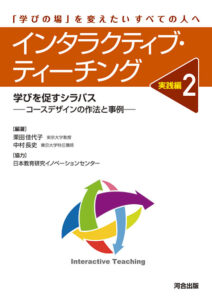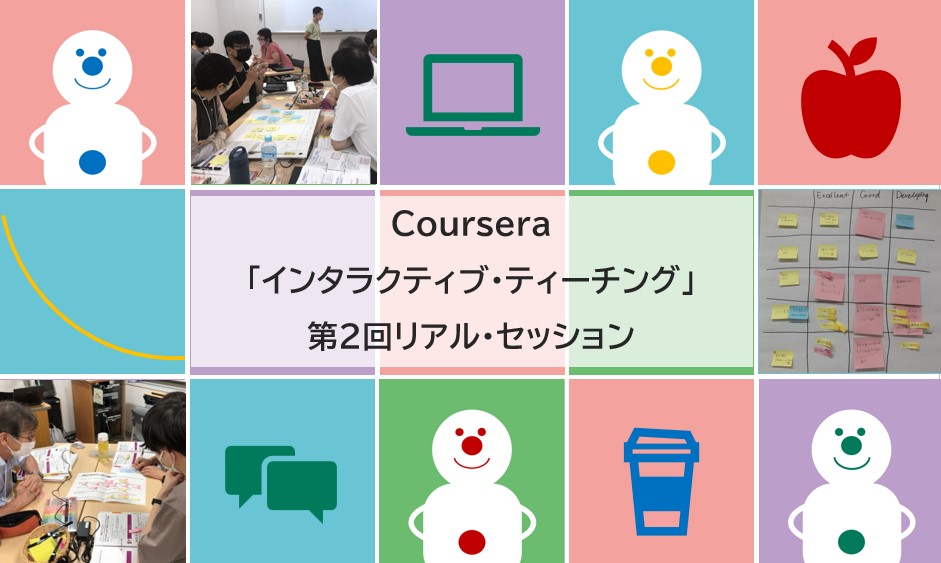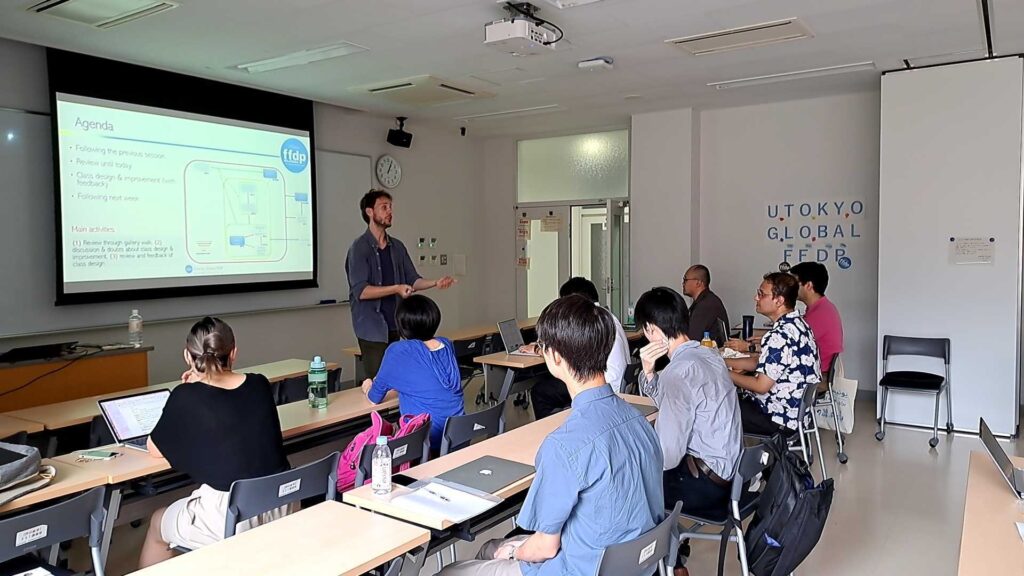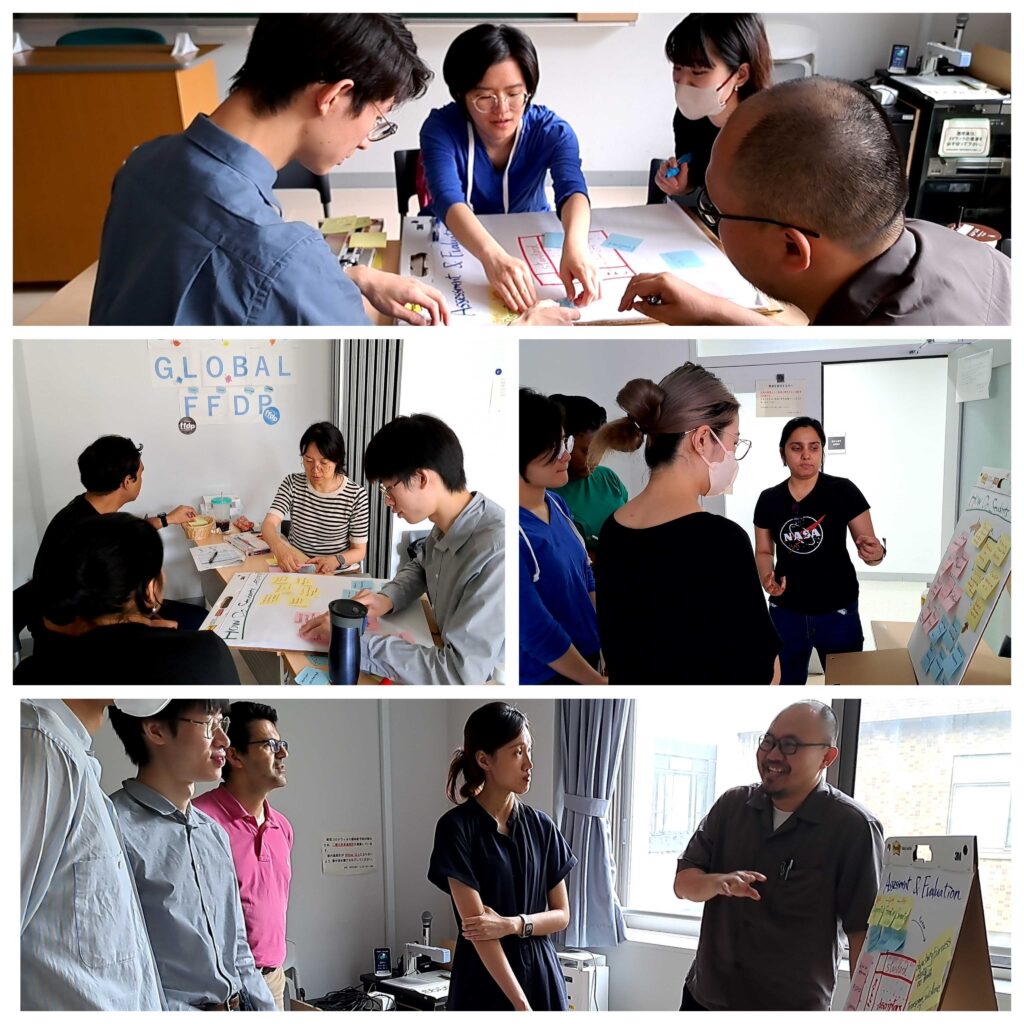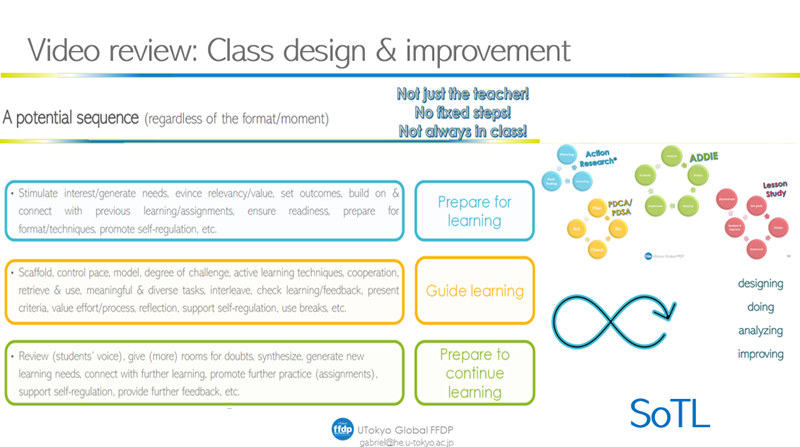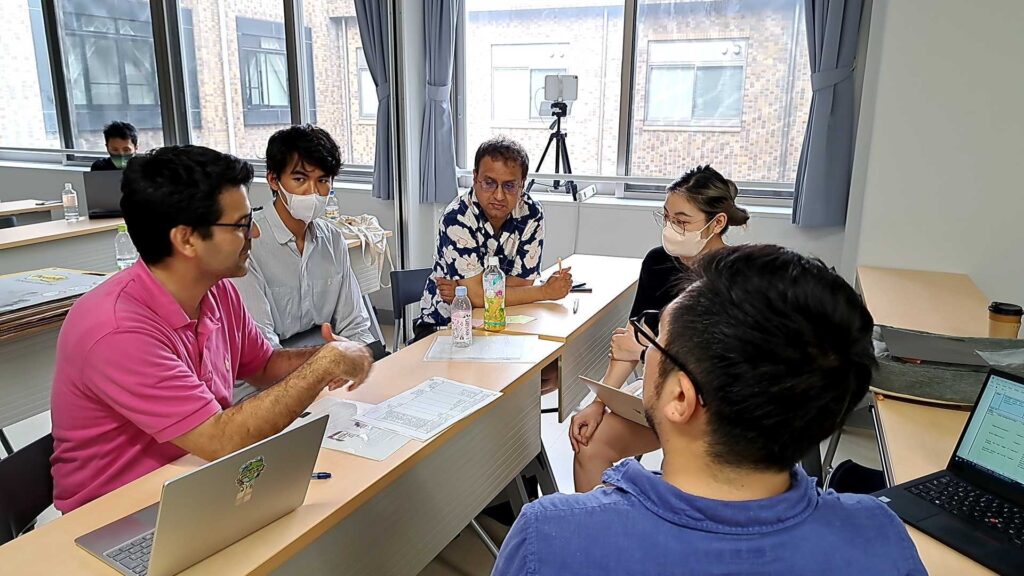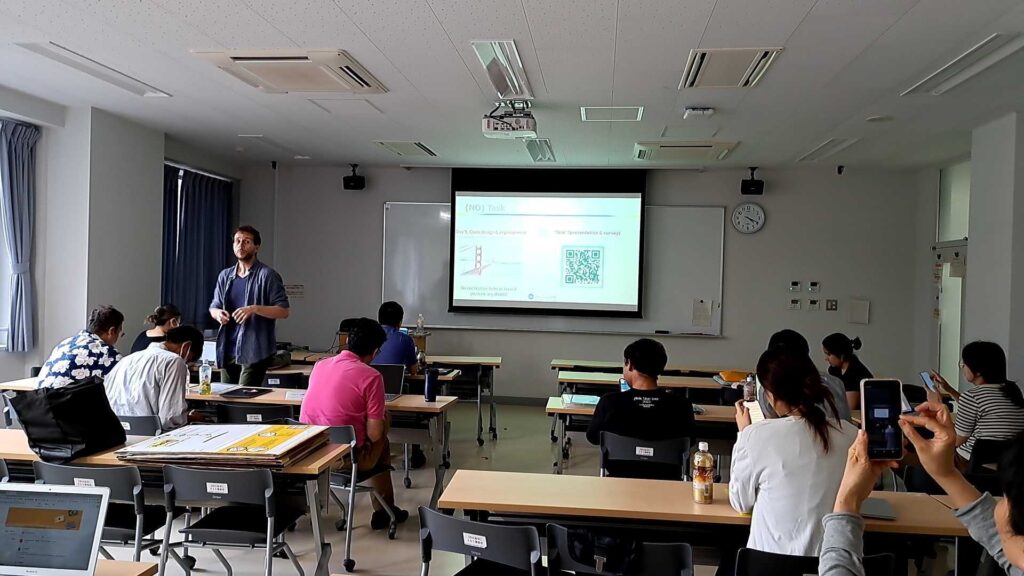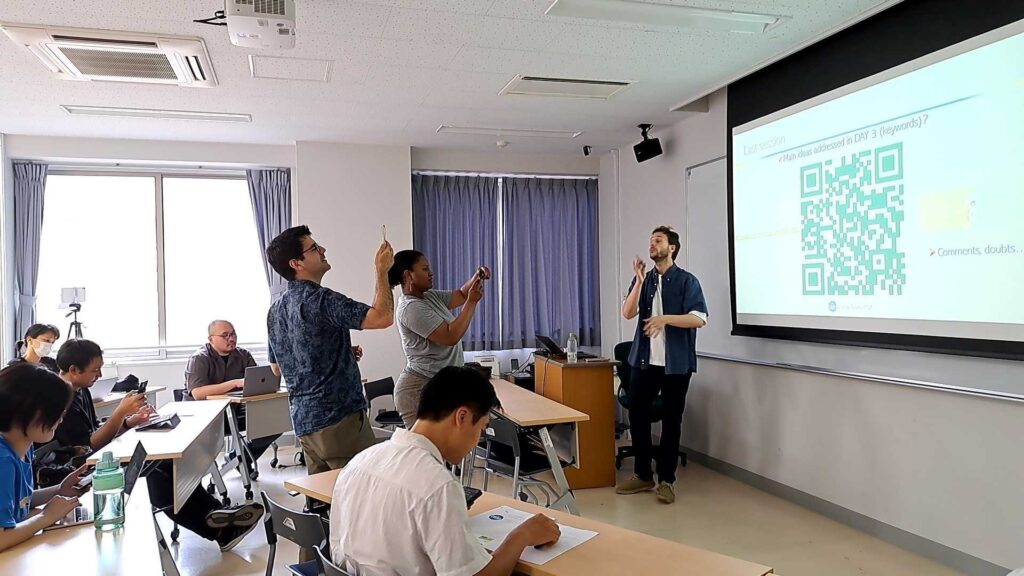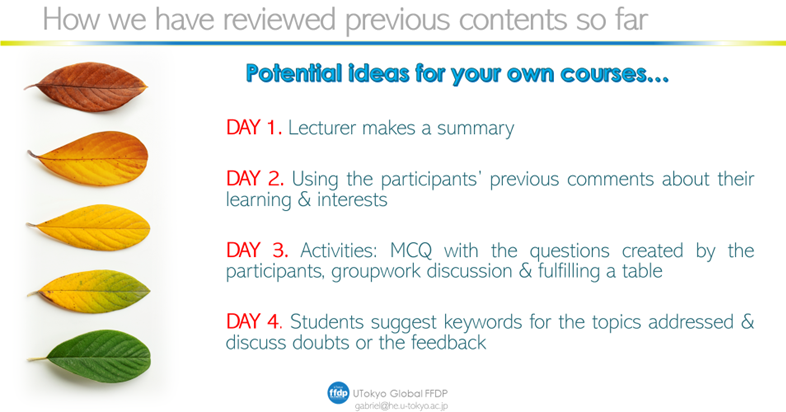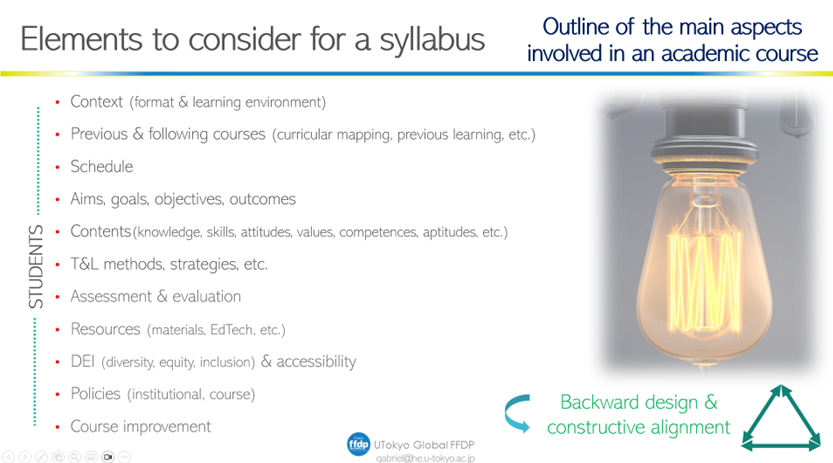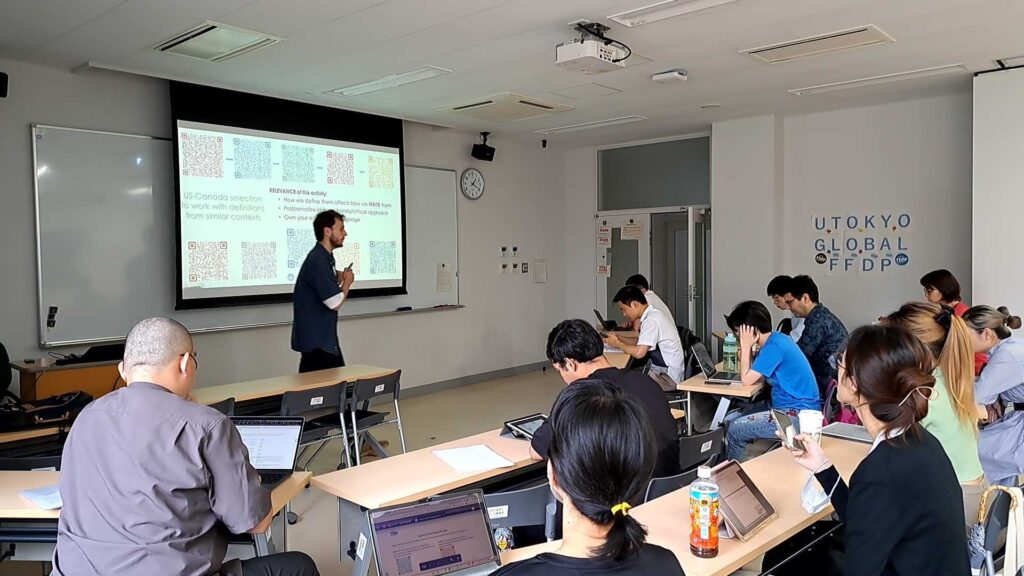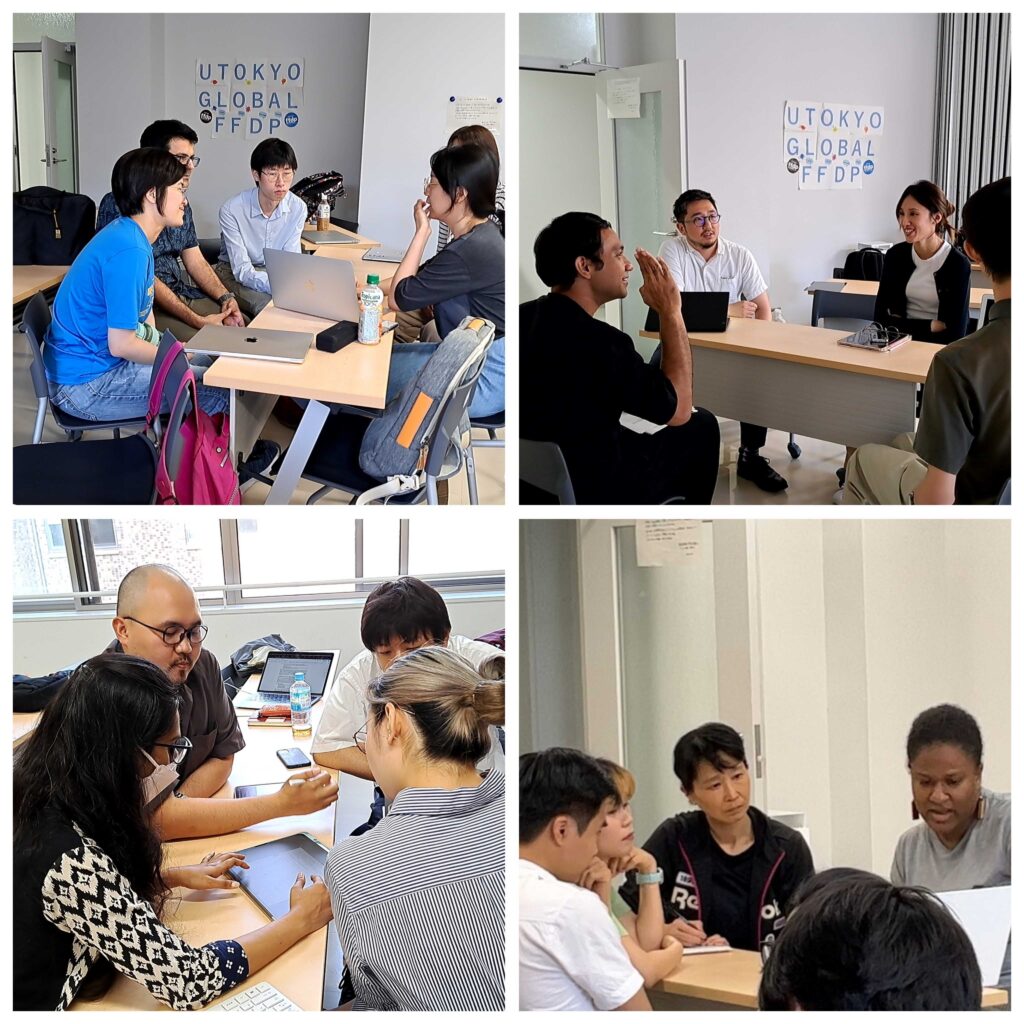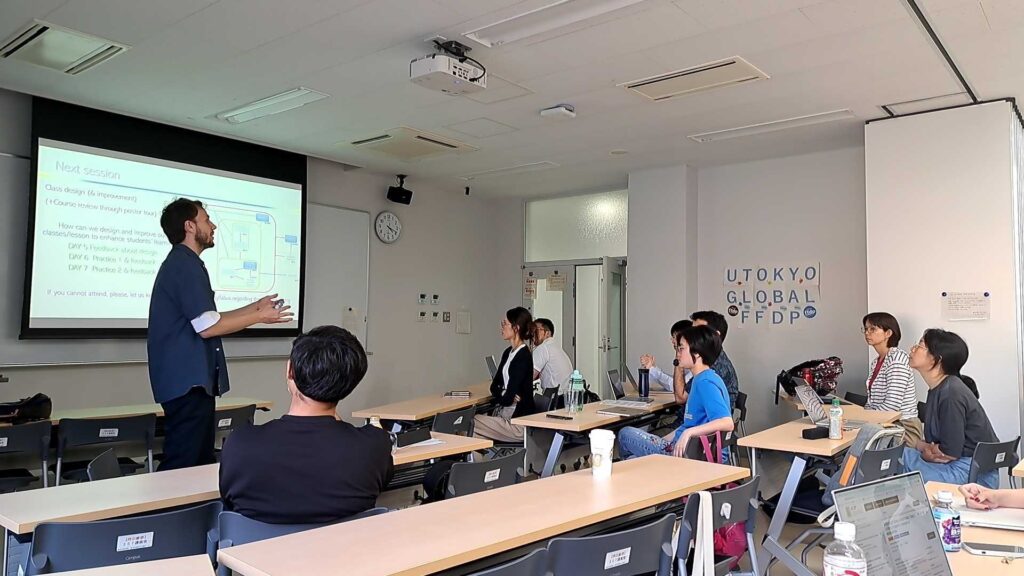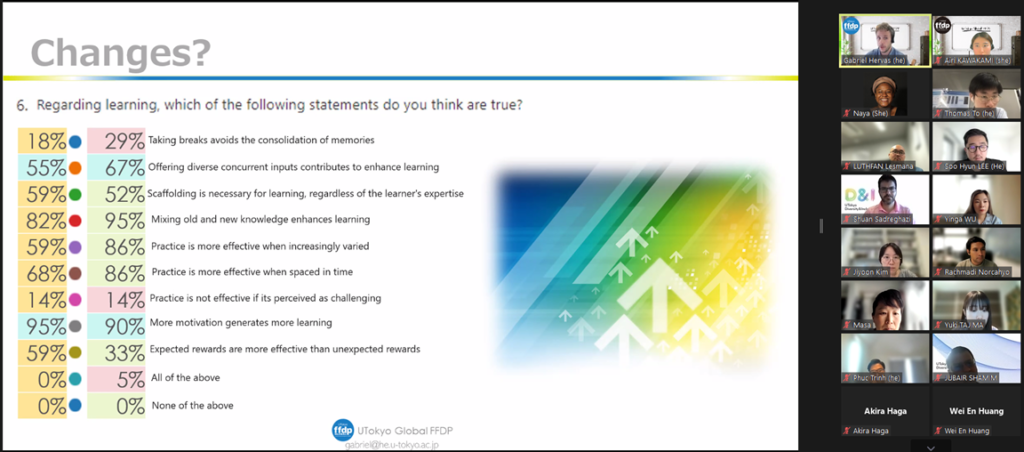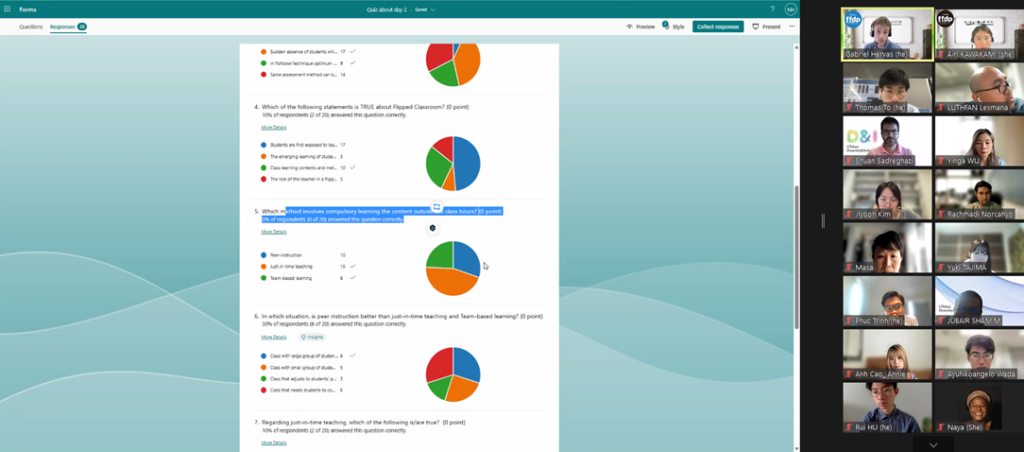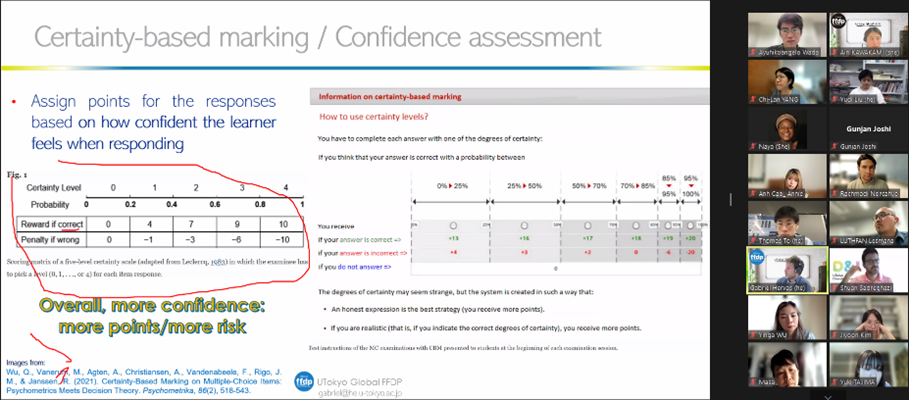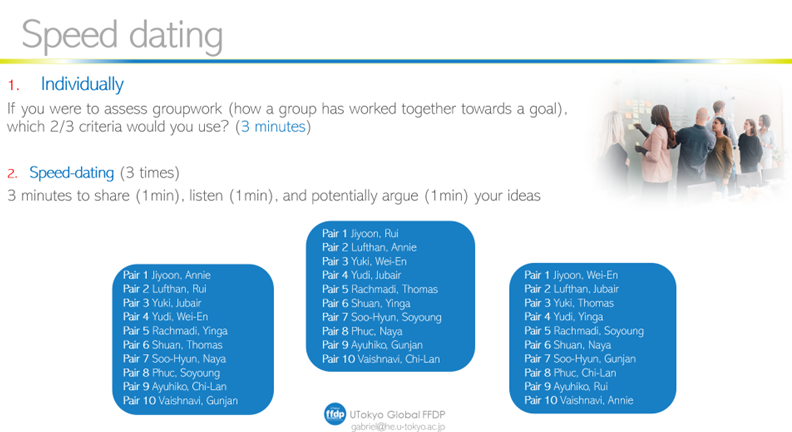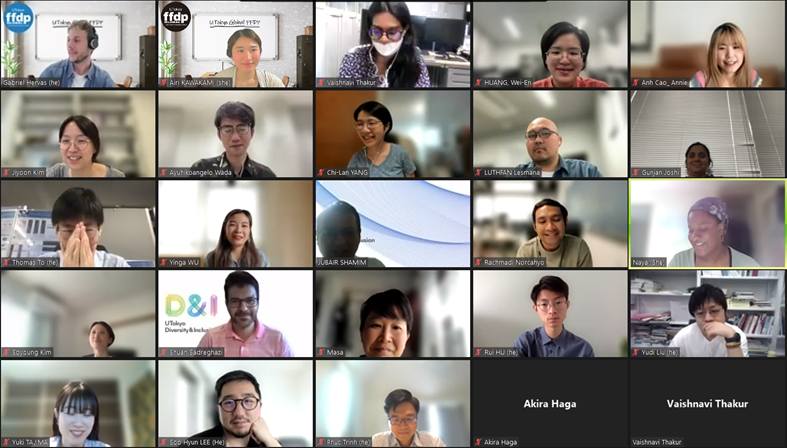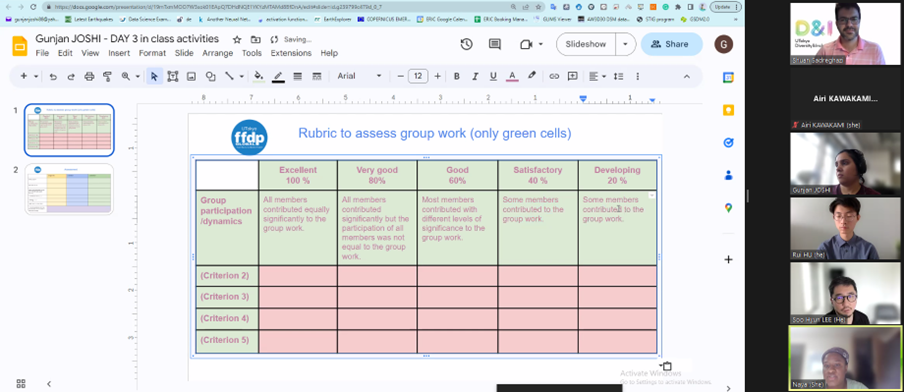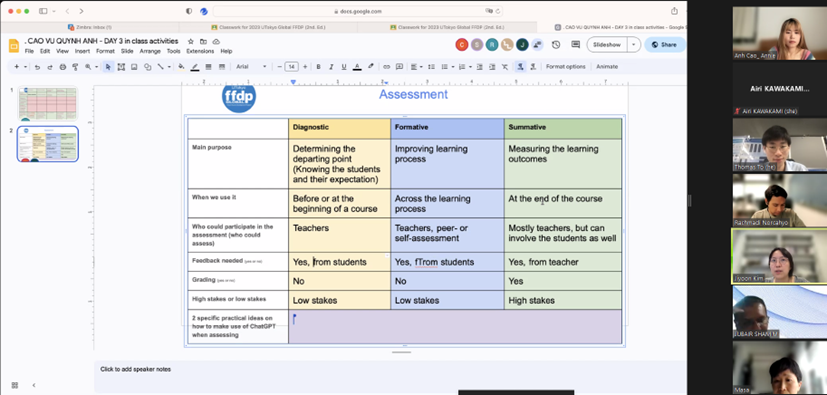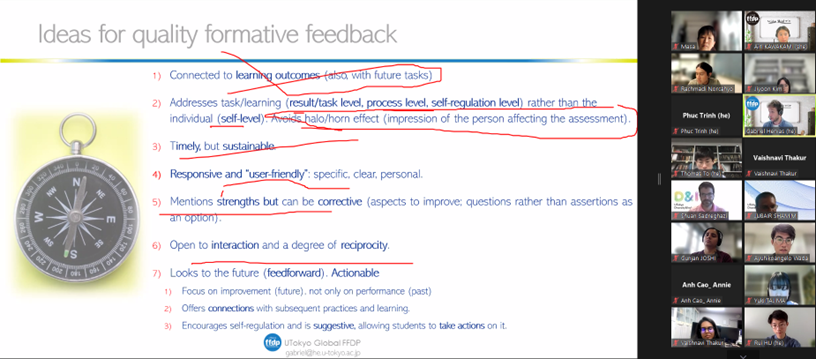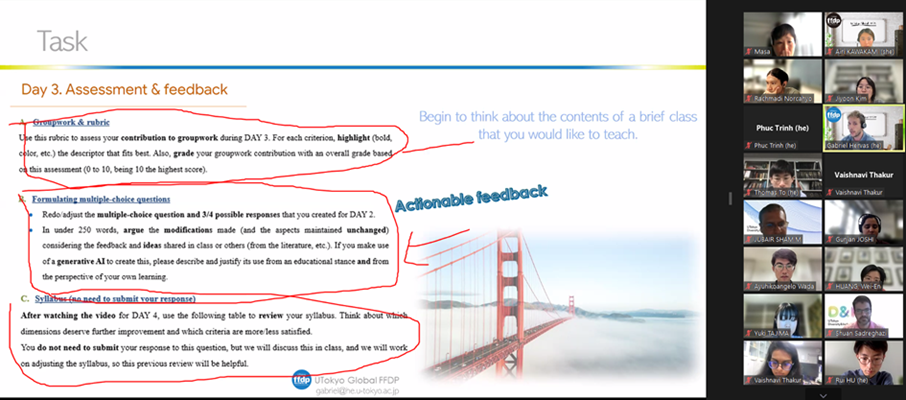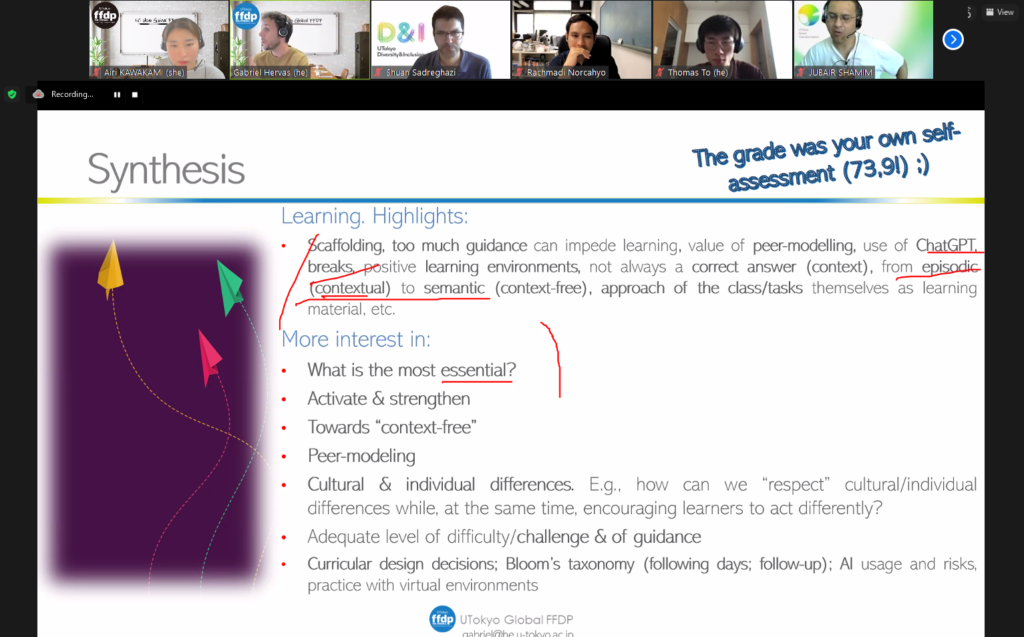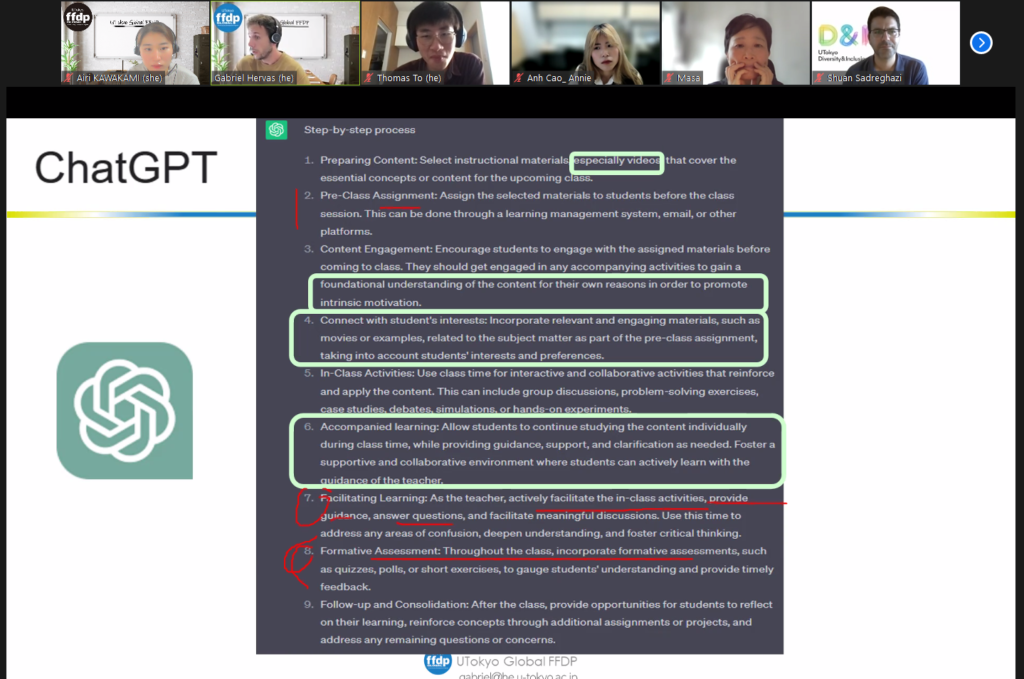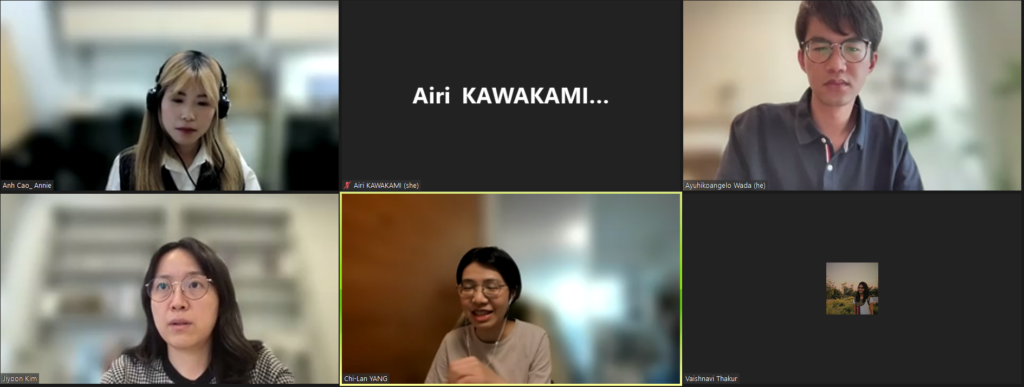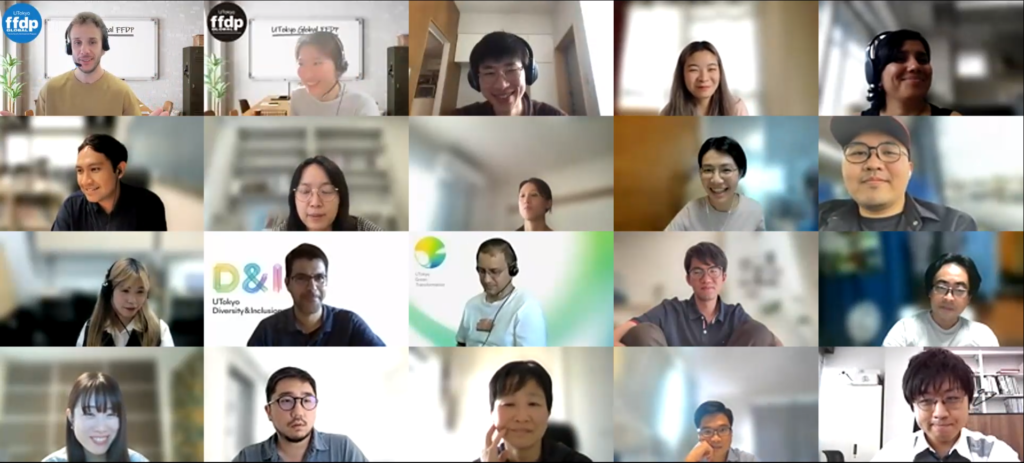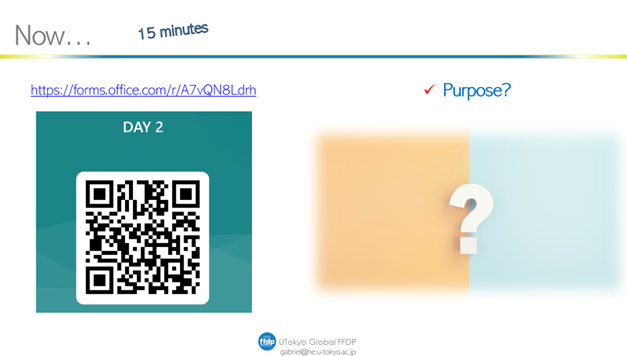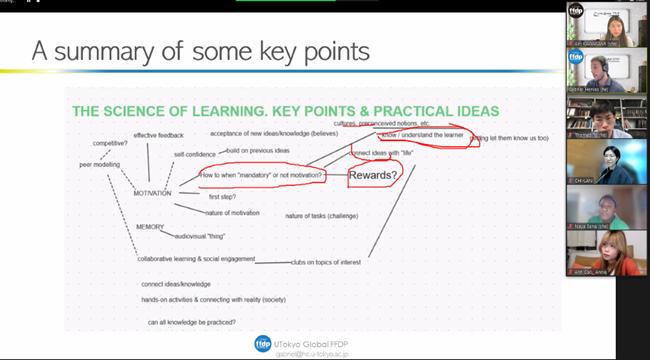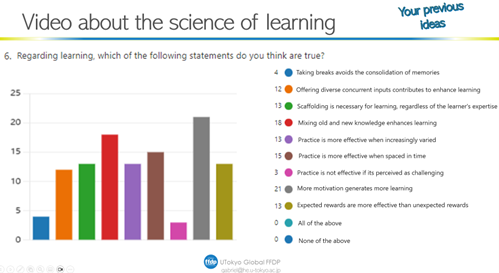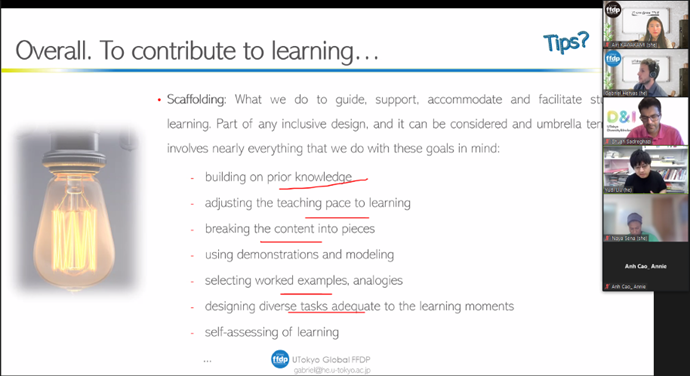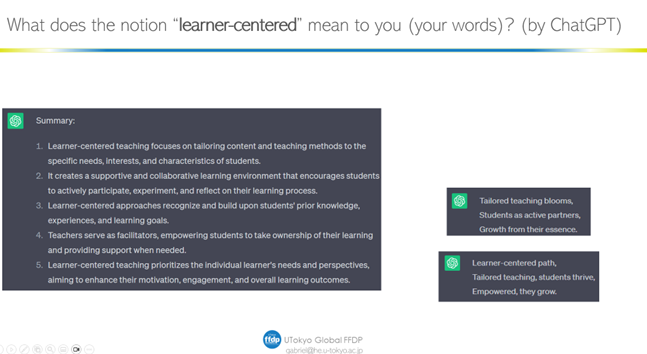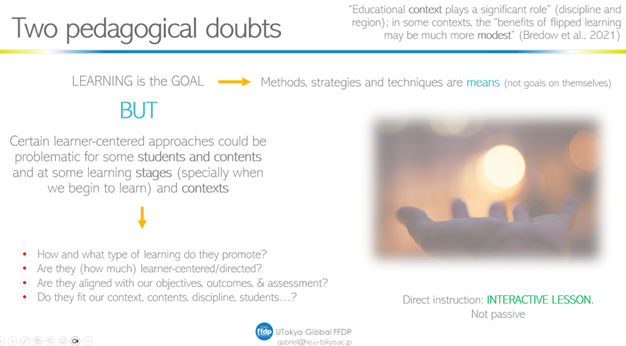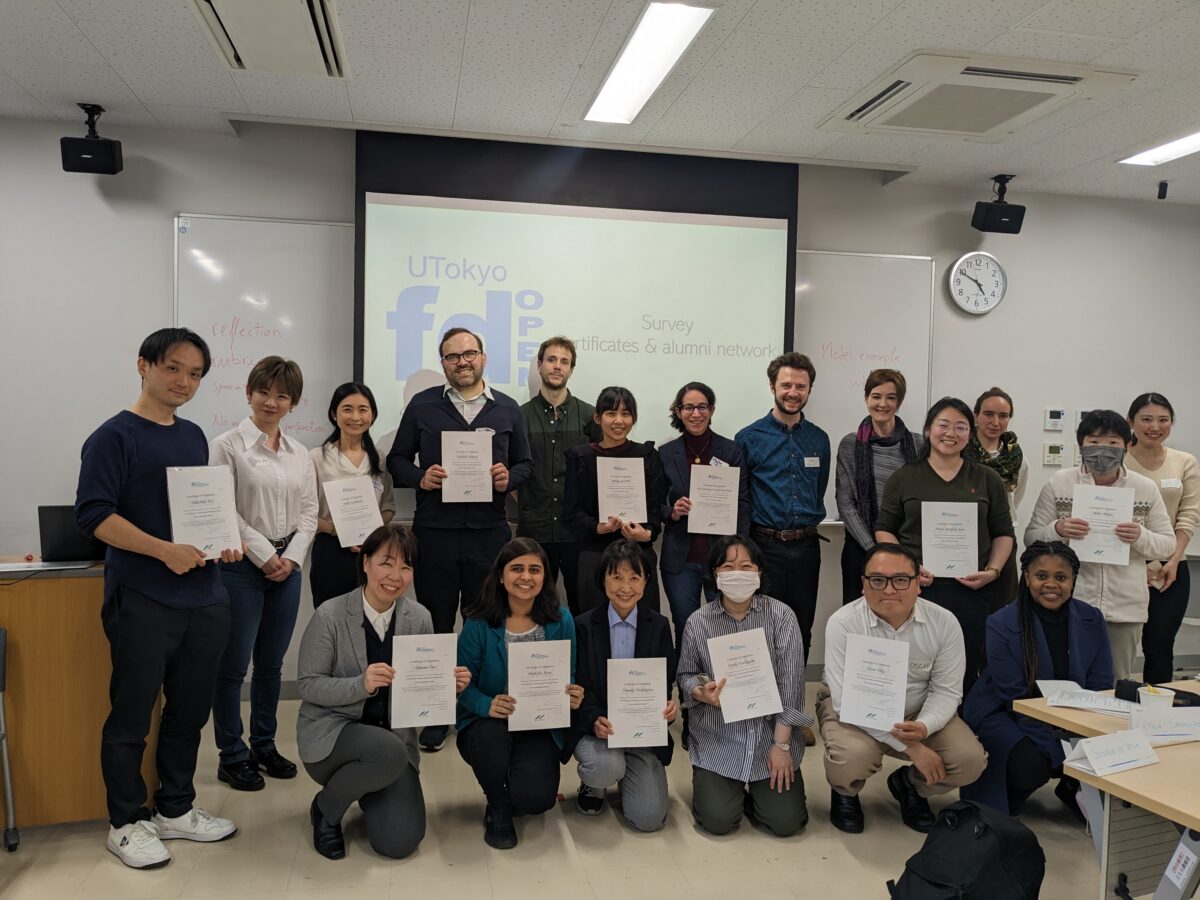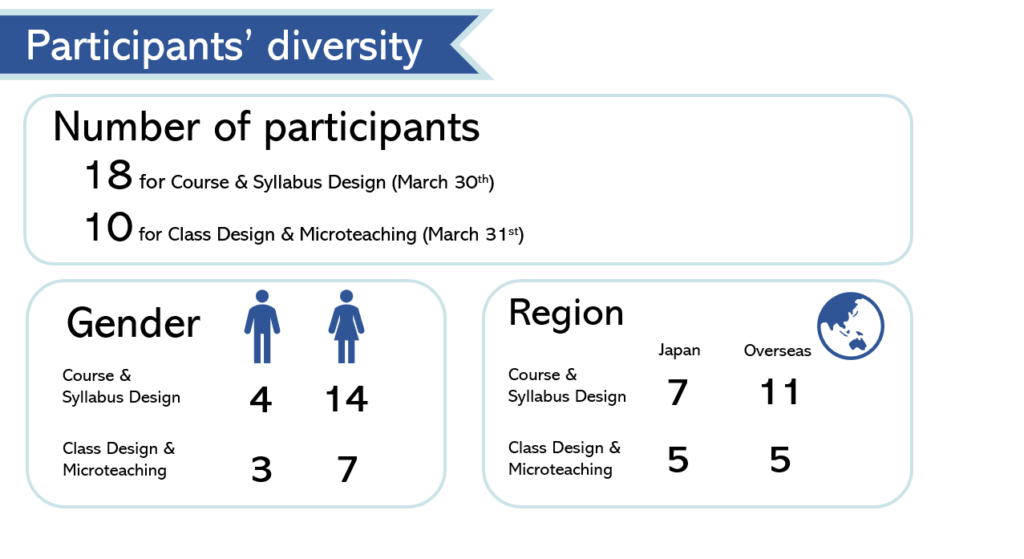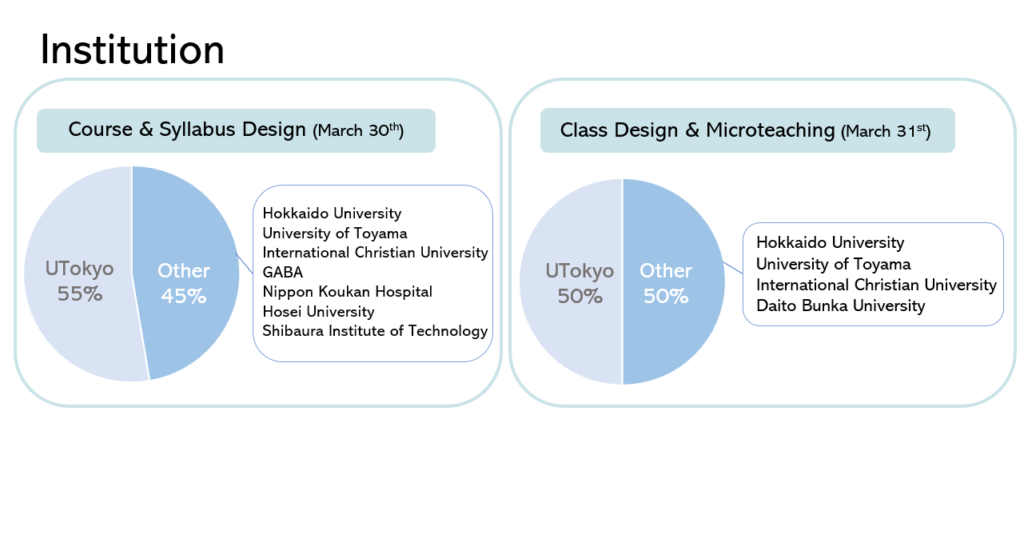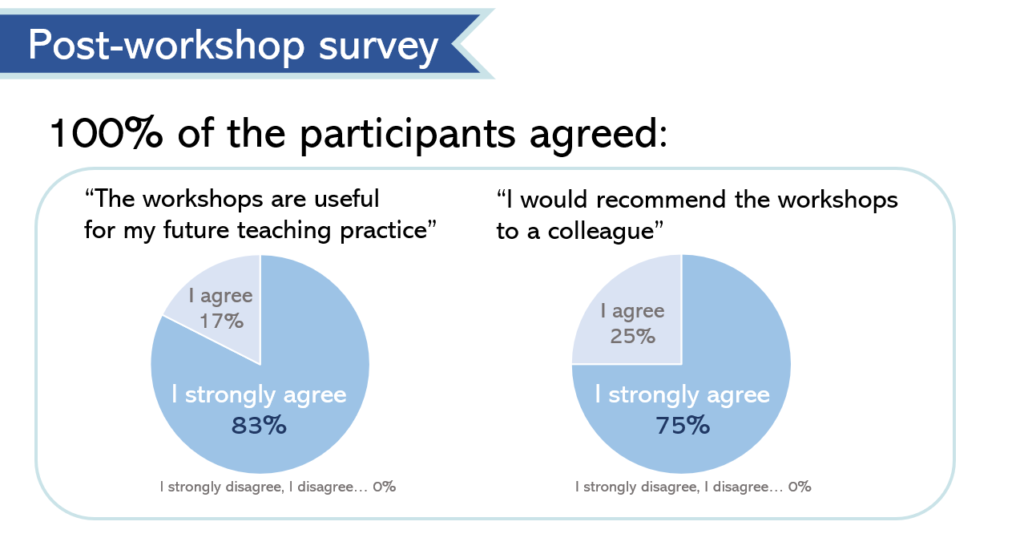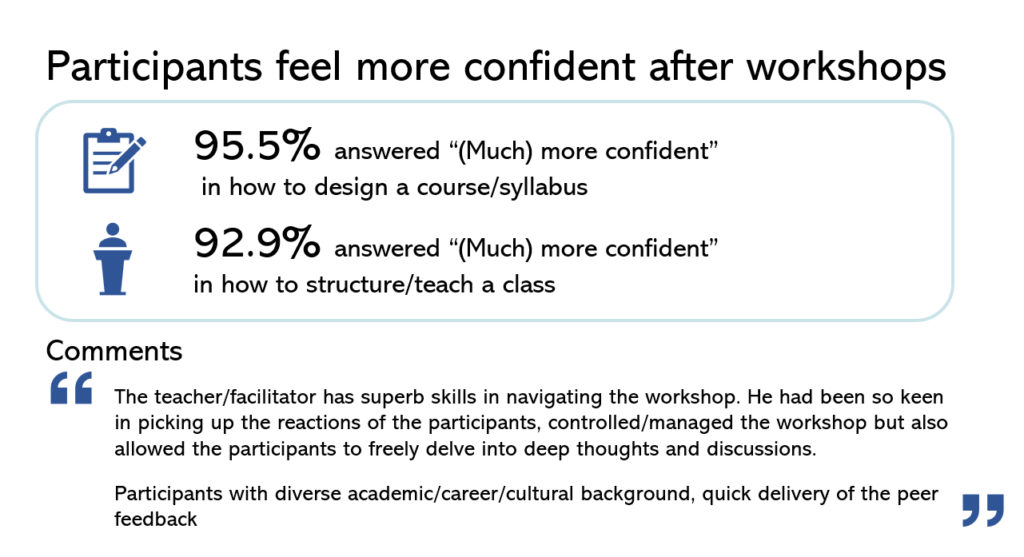The sixth (DAY 6) and the seventh (DAY 7) sessions of the 2nd edition of UTokyo Global FFDP were held in-person on July 11th and July 18th, 2023. These two sessions involved “teaching practice & feedback“. After designing a brief class on the previous class, the participants were now invited to teach it in front of their peers and to share their feedback (twice).
The experience was great, to the point that the participants are interested in doing this again, only that now with a longer class. We will make our best effort to organize new opportunities to that end.
The following are some of the key moments (highlights) of the sessions.
HIGHLIGHTS OF DAY 6・7
For these sessions, we divide the group of participants in small groups. These groups are guided by a supporter who facilitates the group discussions, keeps track of time and, also, shares feedback. These supporters are participants of the 1st edition of UTokyo Global FFDP and of FFP (Japanese version of the program). We would like to express our gratitude for their support! Without them, this experience would be impossible.
Once in their groups, each participant delivered a brief class. These classes were extremely varied in terms of the contents addressed, but also in the use of teaching and learning strategies or of educational technology. Each time a participant finished delivering the class, the peers individually filled a feedback form. This written feedback is later (in the next day) summarized and anonymized and shared with the participants.
After a break, the second part of the class involved the participants in sharing the most relevant aspects of their feedback with the guidance of the supporter. In this way, the participants offered/received both oral and written feedback for each class that they delivered.
As the closure, everyone came back to the main room. There, the supporters and the lecturer summarized what happened in each group and the main takeaways. Also, the participants shared their thoughts about their experience doing this exercise.
Again, we were very grateful to the participants, observers and supporters for their work!
Stay tuned for new reports of UTokyo Global FFDP after DAY 8!
Dr. Gabriel Hervas (Lecturer. Project Associate Professor)
Ms. Airi Kawakami(Staff. Project Academic Specialist)
